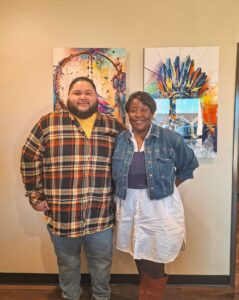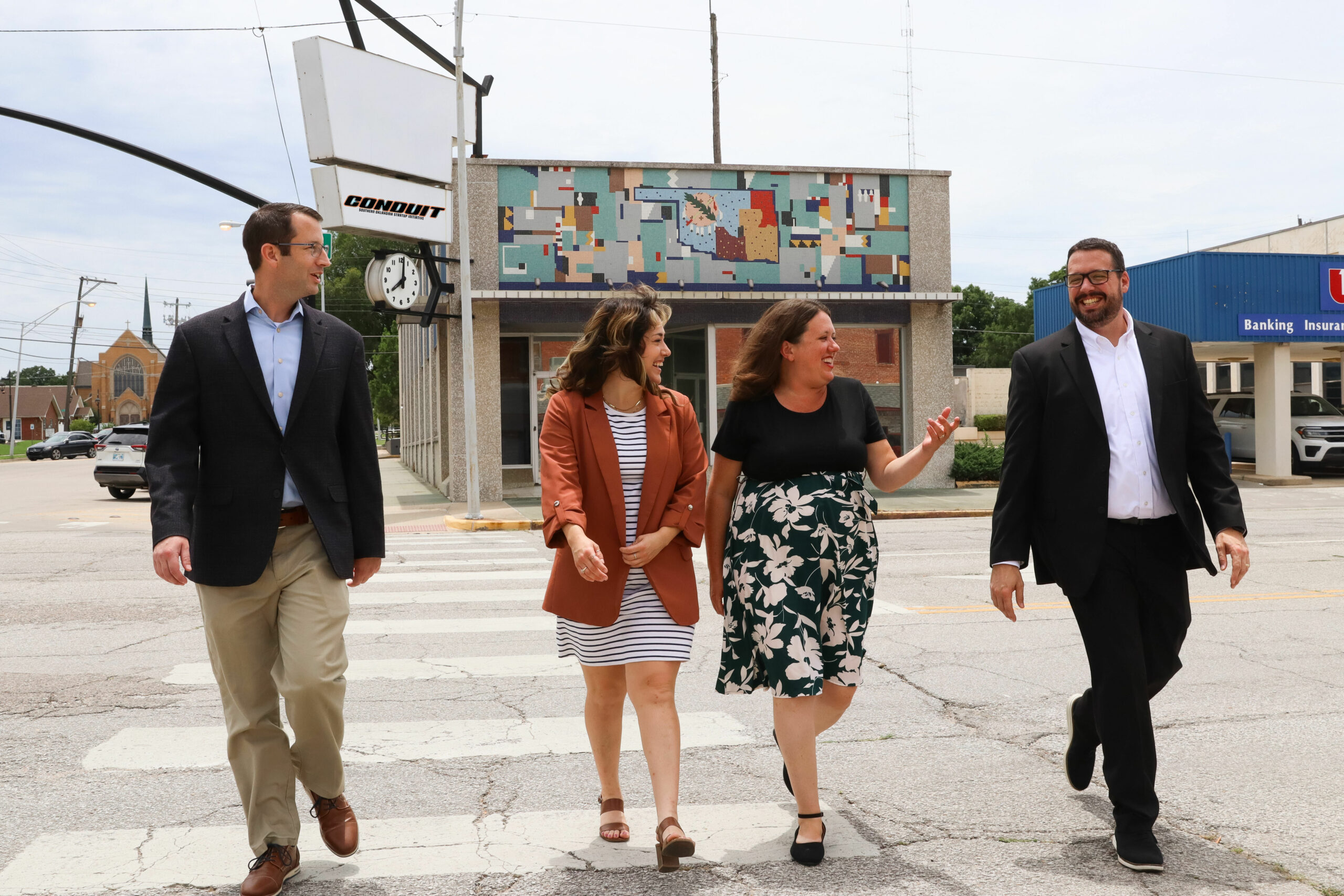
Ecosystem Building Revisited: Learning, Sharing, Connecting
December 15, 2023 by Jessika Leatherbury
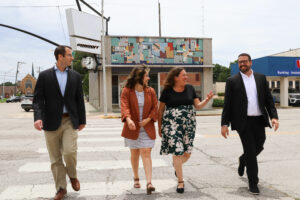 By: Sunnie Dawn Baker
By: Sunnie Dawn Baker
“Entrepreneurship drives economies, but the success of entrepreneurs depends on those around them. That’s why we build ecosystems—or communities—for entrepreneurs. A thriving entrepreneurial ecosystem requires more than entrepreneurs…You and your communities make ecosystems work.” –Victor Hwang from the Entrepreneurial Ecosystem Building Playbook 3.0
British botanist Arthur Tansley originally coined the term “ecosystem” in 1935, but the term entered the world of business in 1993. James F. Moore, in his article “Predators and Prey: A New Ecology of Competition,” published in the May-June edition of the Harvard Business Review, wrote, “I suggest that a company be viewed not as a member of a single industry but as a part of a business ecosystem that crosses a variety of industries.” While Moore primarily focused on the ‘predator and prey’ aspects, using a strong ecosystem to vanquish the competition in a kill or be killed kind of mentality, today’s current concept has taken more of a collaborative tone, where all parts of the ecosystem exist to work together, to strengthen, and build each other up.
Supporting businesses and entrepreneurs requires a community that is willing to work together. Whether it is a factory, a mom-and-pop shop, or a tech entrepreneur, the business is only as strong as the ecosystem that supports it. While some parts of the ecosystem can directly relate to the business, such as lawyers, accountants, and graphic designers, other parts of the community are just as important. Having a strong health care system, education, and housing is necessary, but it is also equally necessary to have coffee shops, restaurants, and boutiques. Community events, the arts, parks, and recreation are also a significant part of this ecosystem. Building an ecosystem builds a community and makes that community a place where businesses want to open, workers want to live, and people want to stay.
Creating this vibrant ecosystem is particularly significant for innovation and technology. When Moore was adapting the word “ecosystem” to the world of business, it was more like a plantation. There is a single crop that is produced and everything in the ecosystem is built up around it, making sure that one crop flourishes and grows—the ecosystem works in service of the single crop. However, 21st century economic development sees an ecosystem more in the rainforest model; you don’t know what will pop out of the soil. You develop a nutrient rich ecosystem that is full of potential to support whatever new creation can pop out of it. The ecosystem is not created to support the entrepreneur, but rather the entrepreneur is created because of the supportive ecosystem and the favorable conditions for growth and innovation. As Hwang writes in “Rainforests as a Model for Economic Growth,” published on the Business Ecosystem Alliance website, “Natural rainforests do not predetermine the evolution of new species, but they provide the right setting to foster their serendipitous evolution. The most promising life forms emerge in unpredictable ways from highly fertile environments. Human ecosystems are similar to rainforests. We cannot force specific innovations into existence sustainably, but we can design and shape environments that cause innovation to be born and thrive.”
While ecosystem building is important for all communities, it can be particularly significant in rural communities because of their unique challenges and benefits. While rural communities may not possess the same resources available as an urban environment, the resources that do exist tend to operate on a more personal level—the people you know, the connections you make, and the level of community engagement can all significantly impact a business, and, especially, an entrepreneur. Molly Pyle, Head of Entrepreneurship for the Center on Rural Innovation, explains the importance of rural ecosystem building, saying, “It is so important, especially in rural areas, because it allows for the network effect. Everybody needs to be playing a role and every organization and person is interconnected to build a better future for the community.” While Hwang views a successful entrepreneurial ecosystem like a rainforest, Pyle thinks of it as a constellation, especially in rural areas.
Pyle explains the ecosystem as a constellation by visualizing the connections between the stars. There are many stars in a constellation, and each star is an individual or an organization. For instance, East Central University, Pontotoc Technology Center, the City of Ada, and the Ada Jobs Foundation could each be a star. When you zoom in closely, you just see a bright shining star, but when you zoom out you can see the full picture of all the stars interconnected to make a beautiful image that tells a story. It is that interconnectedness of all the individuals, organizations, and businesses that makes an ecosystem. This is one of the reasons why it is important to think of ourselves as an ecosystem opposed to individual silos that operate independently of one another. When it comes down to it, the independence of a single entity is merely an illusion; these entities do more than coexist—they cooperate, and the more cooperation present, the stronger they will be.
There are many ways that the Ada Jobs Foundation works to strengthen this ecosystem. Our monthly tech meetups encourage workers in information technology to come together as a community to learn, share, and connect. Likewise, our quarterly roundtables harness and build on the regional ecosystem of those involved in economic development so we can all make our communities stronger. The Youth Coding League gathers students from schools across the county to teach them computer science skills that can lead to careers in technology or equip them with the training they need to develop their own innovations. Entrepreneurship outreach to high school students plants the seeds that could grow into new ventures.
In order to create a successful entrepreneurial and innovative ecosystem in our community we must realize and embrace the strengths of our connections. No single individual or organization or business operates in a vacuum. We all influence each other; this influence can be negative or positive. By choosing to be supportive of one another, and focus on collaboration, the community can come together to create a beautiful constellation that tells our story or a vibrant rainforest that encourages new growth. Together, we construct this ecosystem and strengthen our community through it.
Sign up to receive more news from the Ada Jobs Foundation HERE!
Written by
Jessika Leatherbury
You may also interested in:

BUILDING FUTURES: WORK READY ADA CELEBRATES ITS FIRST YEAR
BY: CATHLENA SPENCER Just one year ago, Work Ready Ada, a new employment readiness program, was launched in partnership with Pontotoc Technology Center (PTC). The program, funded by Oklahoma Human
AI IN EDUCATION: A CONVERSATION WITH VINAYAK MITTY
BY: SUNNIE DAWN BAKER One of the areas in technology with the most potential for entrepreneurial growth is Artificial Intelligence (AI). AI is increasingly shaping every part of our lives,
Adapt and Overcome: Allison Poe’s Recipe for Resilience and Growth
By: Sunnie Dawn Baker Allison Poe has always followed her feet. She waits for the signs to appear and, once she recognizes them, she travels that path, and has never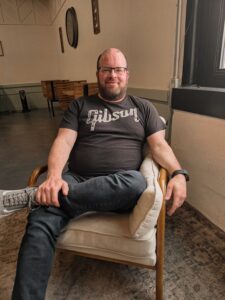
Jeff Warren: A Life in Sound, Vision, and Storytelling
By: Sunnie Dawn Baker When Jeff Warren got involved in the Houston music scene as a teenager, he had no clue where his path would lead. Now, nearly thirty years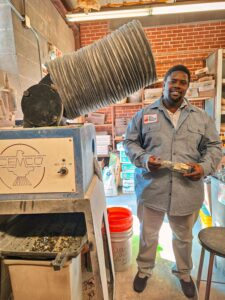
From Pitch to Progress: ECU's Glass Recycling Program Turns Waste into Opportunity
By: Sunnie Dawn Baker In 2018, Dr. Christine Pappas competed in Ada Jobs Foundation’s Big Pitch Competition by promoting grinding glass bottles into sand. She won the Big Pitch that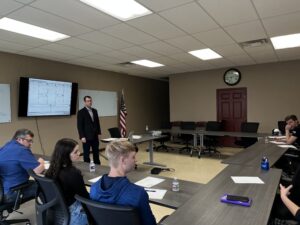
The Importance of Customer Discovery: Know Your Audience and Know Your Market
By: Sunnie Dawn Baker Entrepreneurs and small business owners must consider many factors to achieve success, with their target market being one of the most crucial. Sometimes, when people are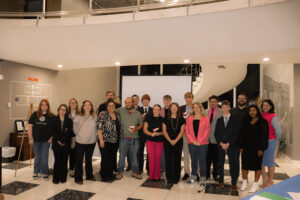
What Does Economic Development Do for You? The Significance of the Economic Multiplier
By: Sunnie Dawn Baker People often find the term “economic development” vague and confusing. Understanding how economic development works and benefits the community can be challenging. Though there are many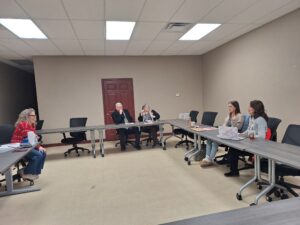
Helping Entrepreneurs One Workshop at a Time: Lauri Rowe and QuickBooks for Small Businesses
Entrepreneurs tend to be filled with passion and big ideas. They have found a solution to a problem they see in the world, and they barrel ahead, excited for their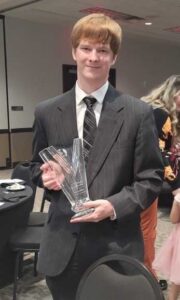
Hunter Cook: Technology, Entrepreneurship, and the Written Word
By: Sunnie Dawn Baker Hunter Cook started writing when he was seven years old. At first, he wanted to write comic books, but then he realized he couldn’t draw. He